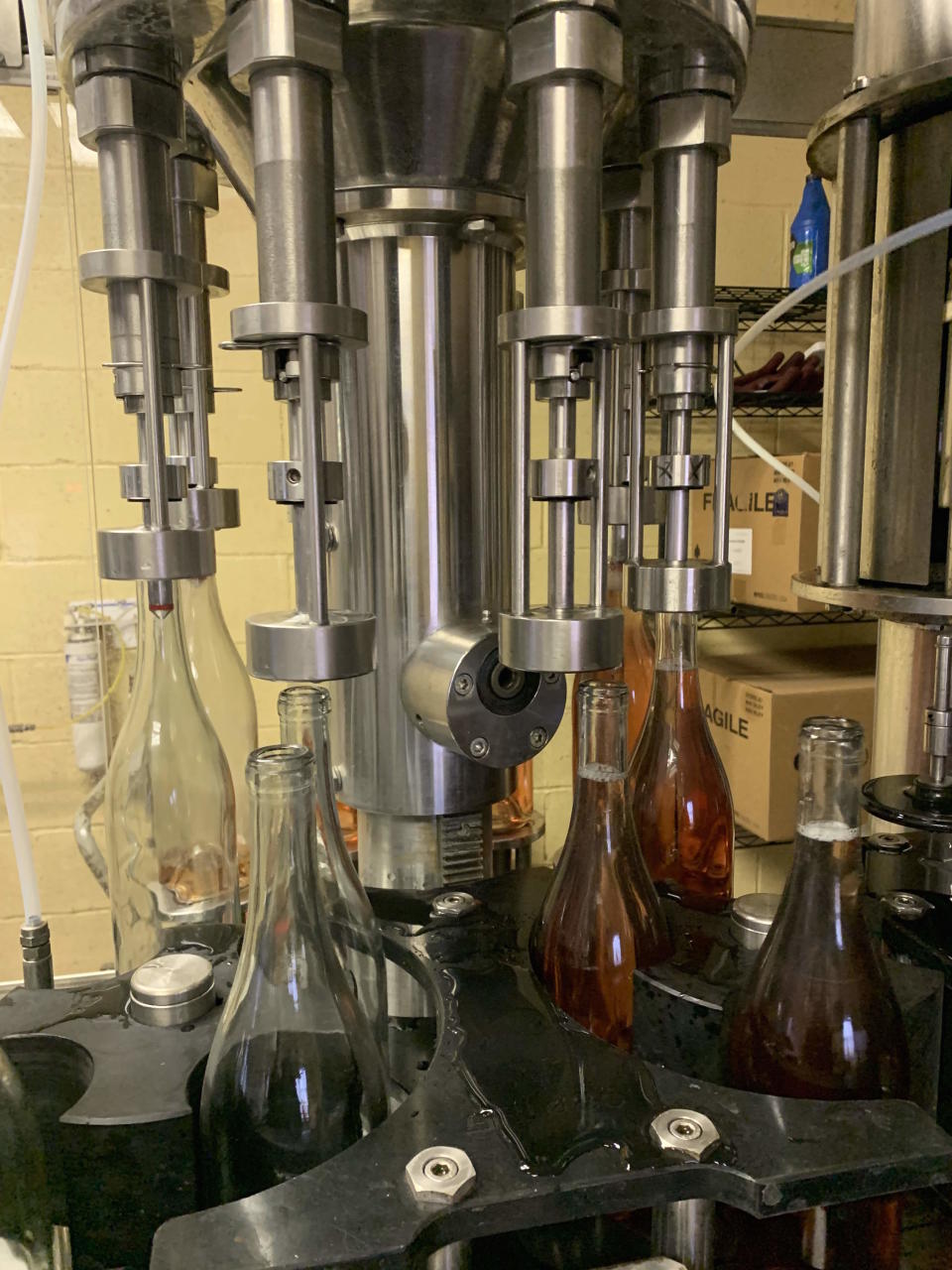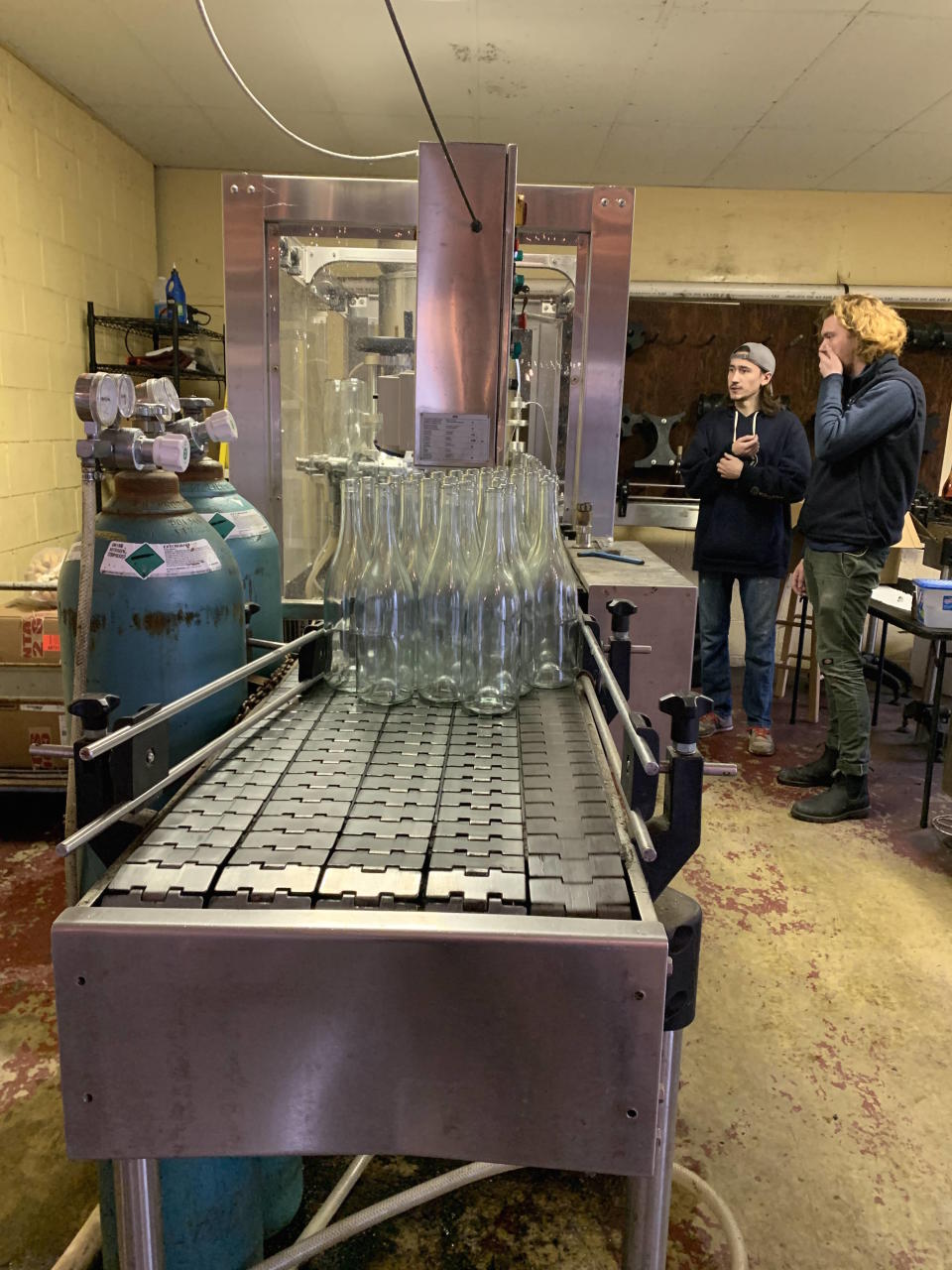I ditched my day job to work at a winery — and learned the reality of a fantasy job
It’s no surprise that when we hear about people making mid-career changes, it's to fields that are fun. Whether it’s the lawyer who ditches his briefs to go to culinary school or the high-powered executive who chucks all the meetings to run a bed-and-breakfast in the south of France, many people decide to shake things up to follow their dreams.
After months of being indoors and living both my work life and social life on the computer, I started to dream about what it would be like to do a job that required leaving the house and doing real, physical labor. The idea of doing work that would force me to be up and moving and involved all my senses seemed so appealing after spending too much time sitting in front of a screen.
For a long time, I’ve wondered what it would be like to work on a winery. But would my love of wine actually translate into a viable career?
Related: It's never too late to go for your dream job.
Jonathan Alpert, a psychotherapist, performance coach and author of "Be Fearless: Change Your Life in 28 Days" told me that it is possible to make a major career change, no matter what point you’re at in life. “I’ve had plenty of clients over the years who have left jobs in law, finance and management,” he said. “Some have left to pursue teaching, others culinary jobs and still others to open their own businesses.”
Alpert stressed that there’s a big difference between a fantasy job — meaning something you only dream about — and a job you could actually see yourself doing.
“If you can come up with realistic and actionable steps to reach your goal, then it becomes less a fantasy and more a passion that can be your profession and therefore worth pursuing,” he said.
I wasn’t quite sure if my new venture fell into the "fantasy job" category, but last winter, I approached Unionville Vineyards in New Jersey with my idea. General manager John Cifelli told me that while there is a lot of drinking and fun that goes on at the winery, there’s also a lot of hard work. Assuring him I was up for the challenge, he told me to report for work.
A few days later, I drove out along the winding country roads toward the vineyard. I was greeted by Conor Quilty, Unionville’s winemaker, who showed me the bottling line, an old-fashioned piece of machinery that whirred in constant action. He was bottling two different types of rosé — their 2019 Unionville Dry Rosé and their 2019 Hunterdon Mistral Rosé.

I watched in amazement as the bottling line ferried empty bottles along, pulling out any oxygen (the enemy of wine) and filling them to an exact line. First up was the Mistral Rosé, which I learned is their Rhone grape rosé made from Syrah, Mourvedre, Grenache and Petite Sirah. At one point in the process, Conor switched over from one tank to another to begin bottling the Unionville Dry Rosé, their less grape-specific rosé made from Cabernet Franc, Pinot Noir and Petite Sirah. The switch left several bottles corked with only a tiny amount of wine in them.
“Do you know how to use one of these?” he asked me, handing me a wine key. Embarrassingly, I struggled to get my first bottle open.
“Don’t worry if you can’t do it,” said one of the men working on the bottling. But I was determined not to fail my first task. Inserting the worm again, I pulled up and thankfully heard a satisfying “pop!” Maybe I wouldn’t be so bad at this after all.
After Conor explained the winemaking process to me (he has a background in botany and enjoys the science behind winemaking) I got to see the different tanks, the four-ton rotating bladder press and the bottling line. When I asked half-jokingly if they ever stomped grapes, Conor said they had in fact used the “foot-treading” technique on occasion.
He said that in addition to tasting the wine, they also check its Ph levels in their “wine lab” to “make sure the science backs up what we’re tasting.”
Clearly, there was a lot more that went into winemaking than I ever could have imagined.
“I’m sure working here isn’t just walking around a beautiful vineyard with a glass of wine in hand,” I said.
“But we do that!” Conor said emphatically. “That’s definitely part of it.”

OK, so maybe this is the career for me! Unfortunately, Jonathan Alpert had more sobering words.
“People often romanticize a certain type of job because they aren’t fully aware of all that’s involved,” he said. “I’ve had plenty of clients enter certain professions over the years based not on reality, but on how it might be portrayed on TV.”
Alpert cautioned that anyone who’s serious about changing careers should do their research.
“It’s important to talk to a cross section of people in the desired career before pursuing it. Get a clear view of what the day-to-day entails.”
In preparation for my stint working in the tasting room at Unionville, I studied the wine list, trying to learn the difference between the vineyard’s five different chardonnays and memorizing the descriptions of the 2019 Cool Foxy Lady, an ice wine-style dessert wine, and the Fields of Fire Blush, which was described as “summer in a glass.” Tiffany Baldino, the tasting room manager, had assured me that I wouldn’t be thrown into the fire. “We won’t have you pour yet,” she told me. Instead, I would be shadowing other employees the same way any new hire would.
When I arrived for work, we had a pre-shift meeting. “This is part of the job,” Tiffany said, handing me a glass with a splash of the Cool Foxy Lady, which wasn’t as overly sweet as most dessert wines I've tried. I finished my sip and readied myself for the influx of guests.
As the crowds started to flow in, I hung out next to each of the regular workers, listening to their spiel on the different wines, running for and opening bottles and constantly polishing glasses as they came out of the sanitizer.
The first thing that struck me was how each of them had their own distinct way of talking about the wines. They were all knowledgeable and yet they were all people who simply loved wine. One was a schoolteacher who did this on the weekend as a way to get some adult time after being with kids all day, while another had simply answered a call for employees in the winery’s email blast. It made me feel like pouring and talking about wine was not some lofty thing that other people did, it was something that I could potentially do — with a little more practice and knowledge.
By the end of my shift, Tiffany gave me the chance to taste the rest of the wines I’d been hearing about all day. On the other side of the bar, I got to be the customer again. And although it was a relief to have nothing to do but sip wine, I really started to think that this could be a great side hustle. I left that day with not just an appreciation for the wine but for the people at Unionville. From the winemaker to the tasting room employees, everyone working there had clearly figured out something that eludes many of us: When it comes to work, do something you love.
“People need to be smart and realistic about making a career change,” said Alpert. “With such a change usually comes both excitement and fear. Not only is it common to worry about things, such as insurance, paying bills and earning enough to save for retirement, but it’s also necessary. Do the math and come up with a smart plan. Come up with small steps to take along the way while staying focused and motivated by the end goal.”
While a career change (even during a pandemic!) is possible, in the end I realized that writing is the thing I love to do. When the ideas are flowing, words fill a page just like wine in a bottle.
Instead of switching careers, I could combat my Zoom fatigue by getting up and taking more breaks outside. Day trips to wineries (as a guest) would give me some much-needed R&R and maybe even some writing inspiration.
That’s not to say I wouldn’t love to work at a winery someday. But for me, the dream is getting to learn about all of the interesting things people are doing and telling their stories. (And celebrating hitting a deadline with an amazing bottle of rosé is not such a bad thing either.)

